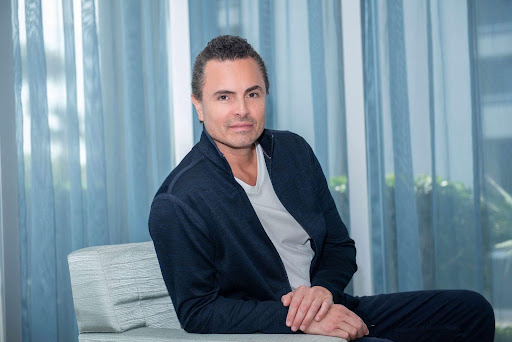
Some companies are loud about their success; others build it brick by brick, wire by wire, over decades and let their work speak for itself. In the heart of New York, family-owned electrical contracting firm Sajiun Electric Inc., has spent nearly 60 years quietly powering the backbone of America's public systems. Schools, hospitals, correctional facilities, courthouses, and government buildings across New York owe much of their functionality to the kind of work most of us never see; yet can't live without.
Serving systems that must never go dark
Sajiun Electric was founded in 1965 as a modest family-run business by master electrician Manuel Sajiun who built it with just two things: his tools and his reliability. In those early days, the company handled general electrical contracting for local businesses and homes.
When the founder's son, Richard Sajiun took the reins in the 1990s, it marked a transformative shift. A trained electrical engineer from Suny State University with a master electrician's license, Richard gradually shifted the company's focus toward government contracting. Under his leadership, the company embraced a new identity: fewer private clients, more strategic bids, and an unwavering focus on the integrity of public work. Today, Sajiun Electric is a trusted name in New York's public infrastructure, with dozens of long-term government contracts under its belt. It was an intentional narrowing of scope that, paradoxically, widened the firm's impact.
Specializing in rehabilitation and retrofitting rather than new construction, the company deliberately avoids advertising, relying instead on public tenders. Its consistent delivery and near-flawless compliance record have quietly earned it enduring institutional trust.
Why only a few dare to enter this field
Unlike private contracts, government contracting offers no flexibility. It demands both competence and compliance across layers of documentation, regulation, and scrutiny. Bidding for public work means combing through thousands of pages of contract documents, navigating prevailing wage laws, and meeting diversity subcontracting thresholds. The margin for error is thin, the payment cycle long, and the rules are rigid.
Richard is the first to admit that government contracting isn't for the faint of heart. Between delayed payments, bonding requirements, and ever-changing wage laws, even experienced firms can find themselves struggling.
"This isn't an industry where you can learn on the job," Richard says. "If you miss a clause or a requirement, you simply don't get paid."
Moreover, aside from the logistical demands lie political and legal landmines. Amongst them is the requirement to pay prevailing wages, often double or triple of private rates, along with mandatory subcontracting to minority- and women-owned businesses.
Sajiun's strength lies in the refusal to compromise on integrity
In a landscape where many construction firms chase growth through volume, Sajiun Electric Inc. takes a different path: prioritizing precision over scale. Even without any in-house marketing team or flashy branding, the firm quietly upholds a rare record: decades of unbroken contract delivery.
Sajiun Electric approaches compliance as foundational, not optional. To stay solvent, the company maintains a healthy line of credit, carefully plans its cash flow, and insists on project-by-project financial discipline. They have built internal systems to monitor every requirement because there's no room for interpretation in a government contract job. No matter the challenge, Richard believes in never losing integrity never cutting corners on quality business operations, unlike many big names today.
While the lack of glory, long and hard bureaucratic process, lots of paperwork, and the extra responsibility are some of the reasons many stay away from government contracting, those are some of the very reasons Richard got into the sector. The hard work makes the projects more meaningful, he says. According to him, the projects may not be too glamorous, but they sure are essential, and at the same time, come with great responsibility.
"You can't cut corners when you're wiring a courthouse or installing backup power in a hospital," Richard explains. "There's no room for guesswork."
Preparing for the next chapter of infrastructure
Richard doesn't claim to have a crystal ball, but he's watching the future unfold with interest. Electrification of transport, expanded EV charging stations, smarter buildings these shifts are already shaping infrastructure needs. He expects that while the core work of electrical contracting will remain, the complexity will increase.
"I don't see robots wiring buildings anytime soon," he says, "but I do see software making our back-end systems more efficient."
However, the company isn't rushing into innovation just for the sake of it. Richard believes in learning from history and following the familiar pattern: watch the market, understand the regulations, and adapt when the time is right. For a business steeped in caution, that kind of patience may be its most future-proof trait.
In an industry often marked by over-promising and under-delivering, Sajiun Electric Inc. offers a rare kind of assurance: a steady, trustworthy hand behind systems that the public depends on the most. With roots that stretch back to a time when electricians wired buildings by hand and values that remain largely unchanged since, the company's future is quietly assured not flashy or loud, but built to last.








